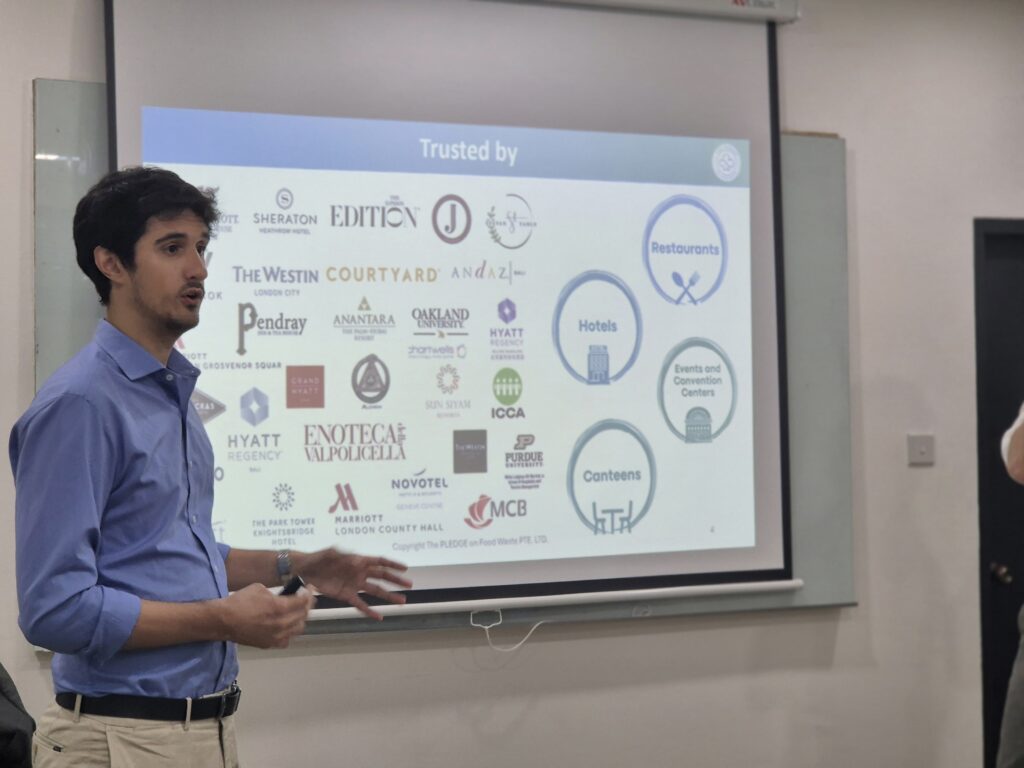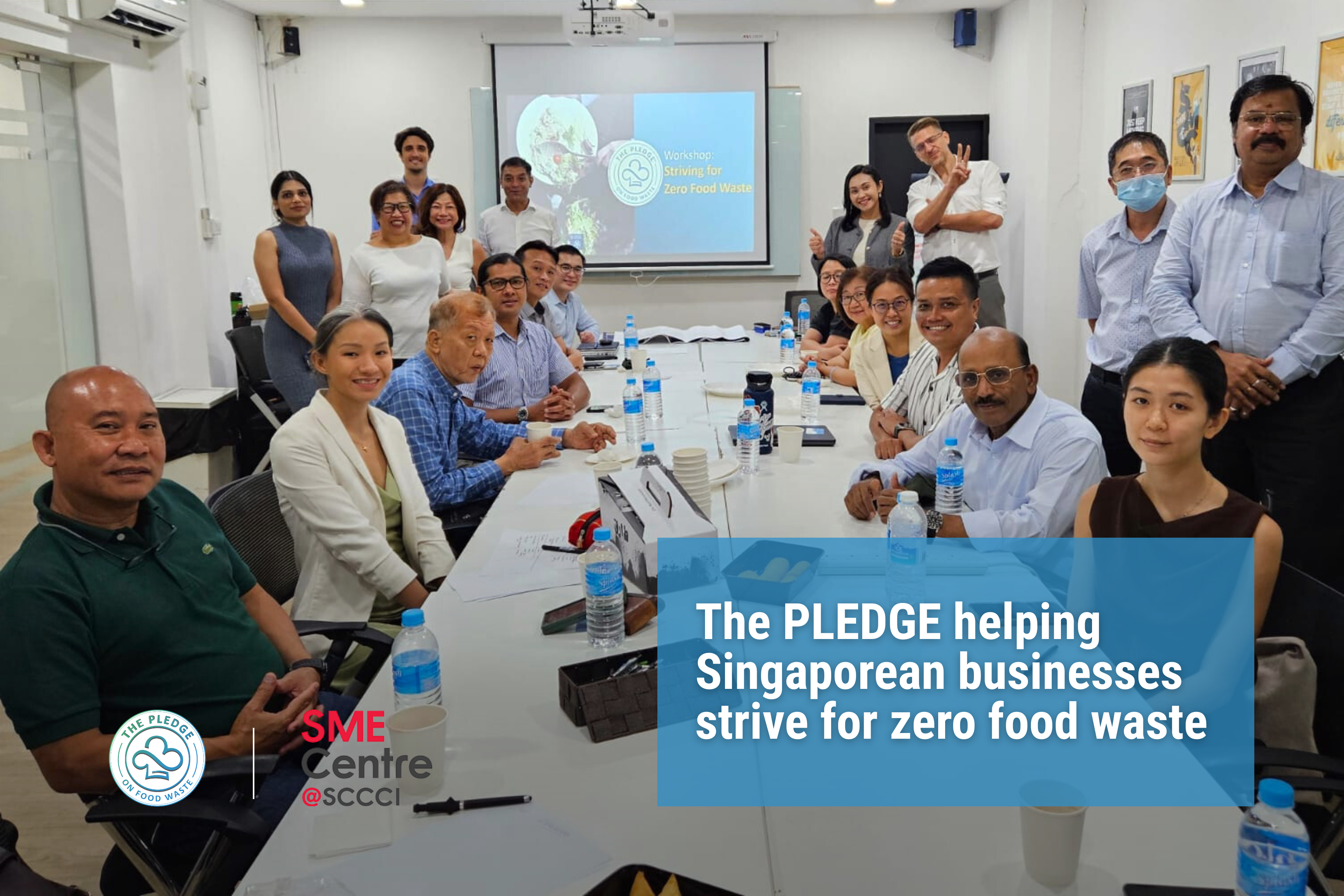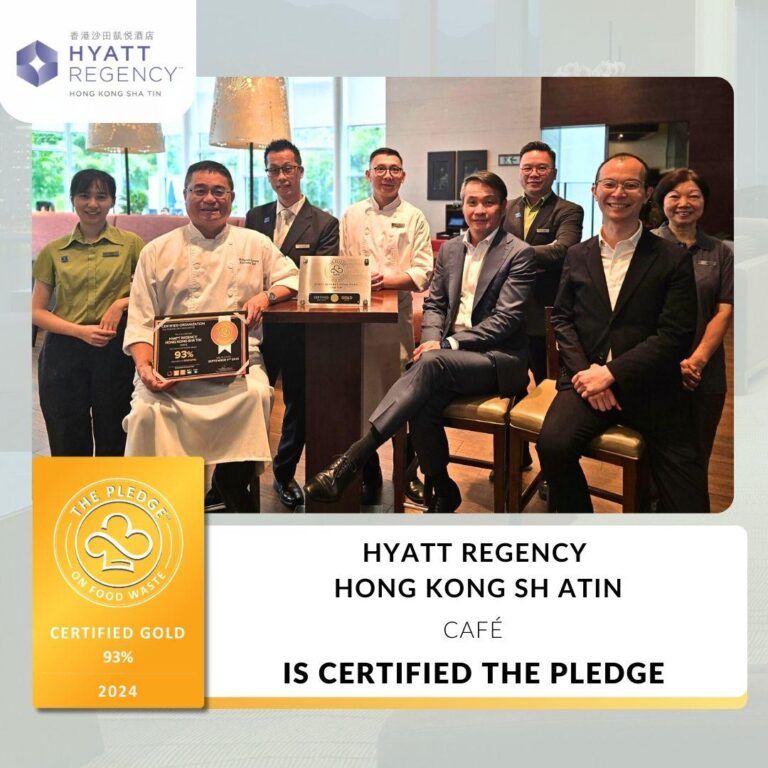The Singapore's Connection
The world of sustainability gets a bad rap. The average person might think of preachy lectures, endless regulations, and costly investments that somehow make everything more complicated. Thankfully, what we witnessed at SME Centre@SMCCI‘s sustainability workshop couldn’t be further from that stereotype. Singapore’s hospitality scene is undergoing a quiet revolution, proving that practical solutions like food waste certification are key to progress.
While the city-state has long been known for its efficiency and innovation, a new wave of small and medium enterprises (SMEs) is proving that sustainability isn’t just good PR – it’s good business. SME Centre@SMCCI, a collaboration between the Singapore Malay Chamber of Commerce and Enterprise Singapore, has been at the forefront of this transformation. Their mission is to help local hospitality businesses turn environmental challenges into competitive advantages. And they’re not doing it alone.
The Singapore Connection
Food waste in hotel operations represents a significant global challenge, and Singapore’s bustling hospitality sector is no exception. Hotels, with their diverse culinary offerings, extensive buffets, and high guest turnover, inevitably generate substantial amounts of discarded food. This problem extends far beyond simply throwing away edible items. It involves the wasted resources, water, energy, and labor that went into producing, transporting, and preparing that food. This directly impacts a hotel’s financial bottom line through increased procurement costs and disposal fees.
Furthermore, the environmental footprint of food waste in hotel settings is considerable, contributing to greenhouse gas emissions when organic matter decomposes in landfills. Consumers are also increasingly aware and demanding of sustainable practices. Hotels that fail to address their environmental impact risk their brand reputation and could lose eco-conscious guests. Consequently, tackling food waste in hotel operations has become crucial for both economic viability and environmental responsibility within Singapore’s competitive market. This creates an urgent demand for effective, tangible solutions.

A Collaborative Approach
The PLEDGE team has been working with SME Centre@SMCCI for months developing the workshop, “Sustainability in Hospitality: Accelerating Singapore’s Green Tourism Vision”. It’s part of Singapore’s broader push to position itself as a sustainable tourism destination while helping local businesses thrive financially. There hasn’t been much practical sustainability support for smaller businesses, and The PLEDGE specializes in exactly that space. The opportunity to prove that sustainability can be profitable feels like validation of everything they’ve been working toward.
What makes Singapore’s approach different is the integration of government support, business expertise, and practical technology. SME Centre@SMCCI offers more than workshops such as providing a complete business diagnostic toolkit, customized support from business advisors, and access to grants that can help fund sustainability initiatives. It’s a truly comprehensive approach designed to address the real barriers SMEs face when attempting to implement significant operational changes. This holistic support directly facilitates the path toward food waste certification.

Partnerships For Progress
The workshop also highlighted the collaborative nature of Singapore’s sustainability push. The PLEDGE worked alongside other industry partners like SusTek and Firebelly Brand Consultancy, plus connected with sustainability advocates like Yindii, Enerprof Pte Ltd, D2L.sg, treatsure, and Food from the Heart. Rather than receiving fragmented guidance from individual consultants, businesses gain access to a comprehensive support network that addresses multiple aspects of their sustainability journey.
What struck everyone was the readiness of Singapore’s hospitality SMEs to embrace change. These aren’t businesses looking for greenwashing opportunities or superficial sustainability gestures. This proactive mindset is fundamental to achieving significant reductions in food waste in hotel and restaurant settings
Our methodology is relentlessly data-driven. If sustainability is going to be proven viable in the business world, the numbers must unequivocally support it. The PLEDGE has truly come to terms with the demanding nature of their mission. While implementing real-world solutions, you rarely witness how many other companies follow suit. This is precisely what makes each individual project so significant. Every effective transformation could spark industry-wide change, one operation at a time. The emphasis on measurable results through systems like food waste certification ensures that efforts lead to tangible improvements.
This systematic approach offers immense value. For example, by tracking every aspect of food procurement, preparation, and disposal, businesses can identify precise areas of waste. This data empowers them to make informed decisions, optimize purchasing, refine portion sizes, and improve staff training. The results directly impact the reduction of food waste in hotel kitchens and dining areas.
The work being done in Singapore is creating a blueprint for other regions to follow. The success stories emerging from SMEs adopting food waste certification demonstrate that environmental responsibility and economic success can go hand-in-hand. These pioneering businesses are showing that leadership in sustainability can translate directly into leadership in the market. They are proving that a commitment to reducing food waste in their operations can become a powerful differentiator.
Is your business ready to join Singapore’s hospitality revolution?
Follow The PLEDGE on Food Waste:




